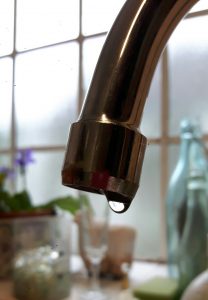
Few of the increasing number of homes in the UK are without a washing machine, dishwasher, bath or shower, but did you know that the average person living in a domestic property demands 150 litres of water every day?
The Consumer Council for Water reported 3.5 million complaints and 200,000 customers left without water after March’s storm, ‘the Beast from the East’. Nine of the 21 water companies in England and Wales recorded an increase in ‘unwanted customer call contacts’ (complaints by phone) and four received an increased number of written complaints.
However, once again, after another year of exceptional weather, the efficiency of the UK’s domestic water supply and the companies that provide it have come to the attention of consumers and the industry alike, after a second consecutive increase in lost water due to leakages.
On average, droughts are predicted to occur every five to ten years in the UK. The summer of 1976 saw Britain’s homes using standpipes and shared bathwater, and an estimated failure of £500 million of crops with a consequent rise in food prices. The drought finally ended in the September, when heavy rain caused flooding in some parts of the country.
Heatwaves have come and gone since and, until this year, 1995 was widely regarded as the driest summer with water restrictions suffered by a third of the UK’s homes and the threat of standpipes in Yorkshire.
In the year to April 2018, nine private companies that supply water to England and Wales failed to meet targets set to reduce leakages. In 2017-18, leakages actually increased by 1.5% – an average loss of 3,170 million litres every day.
Thames Water was the worst offender, averaging a loss of 181.6 litres per day, and the company suffered severe financial penalties as a result. In June 2018, it refunded £65 million to customers and incurred £55 million of automatic penalties for its failure to adequately tackle leakage.
Water lost to leakage in England and Wales peaked at 5,112 million litres a day in 1994-95, five years after the industry was privatised. Since privatisation, water bills are estimated to have risen by 40% above inflation and the most recent figures show a decrease in leakage of around 38% since that time.
The Consumer Council for Water has warned that action cannot wait. However, a report produced by the National Infrastucture Commission (NIC) said that analysis by water companies and the government water regulator, Ofwat, suggested that it would be cheaper to use more water than to further reduce leakage – although this would ignore the environmental benefits of not wasting it, nor indeed the effect on public attitude.
Water meters are shown to see an increase in leak identification by householders but only 50% of UK homes are currently fitted with a meter. Homes located in areas of ‘water stress’ are the only ones required to have a water meter.
The industry has committed to an investment of £50 billion between 2020-25 to improve services and it is thought likely that smart meters will be fitted by default in the future. The NIC has suggested amending regulations by bringing forward the target dates for all homes in the UK to be fitted with a water meter to the end of 2019.
Don’t be a drip when you buy your next property – contact your local Royal Institution of Chartered Surveyors registered Chartered Surveyor for an independent home survey, building survey or property valuation in England and Wales.
Back to September 2018 NewsletterÂ
© www.PropertySurveying.co.uk
SH/LCB

